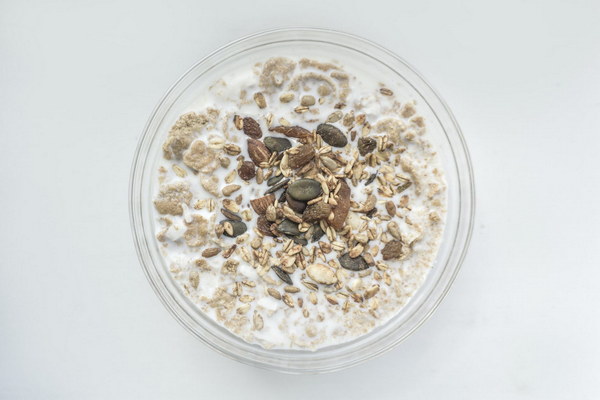Revitalize Your Health with the Power of Intermittent Fasting A Comprehensive Guide
Introduction:
In today's fast-paced world, finding time to prioritize self-care and health can be challenging. However, one effective method that has gained significant popularity is intermittent fasting. This article delves into the concept of intermittent fasting, its benefits, and provides a comprehensive guide on how to incorporate it into your lifestyle.
What is Intermittent Fasting?
Intermittent fasting (IF) is an eating pattern that cycles between periods of eating and fasting. It involves alternating between periods of eating and not eating, rather than focusing on the types of food consumed. There are various methods of intermittent fasting, but the most common ones include:

1. 16/8 Method: This involves fasting for 16 hours and eating within an 8-hour window.
2. 5:2 Diet: For five days of the week, you consume regular meals, while for the other two days, you limit your calorie intake to 500-600 calories.
3. Eat-Stop-Eat: This method involves fasting for 24 hours once or twice a week.
Benefits of Intermittent Fasting
1. Weight Loss: Intermittent fasting has been shown to promote weight loss by reducing overall calorie intake and increasing the body's metabolic rate.
2. Improved Blood Sugar Levels: IF helps regulate blood sugar levels by reducing insulin resistance and improving insulin sensitivity.
3. Enhanced Brain Function: Research suggests that intermittent fasting can improve cognitive function and memory by promoting brain-derived neurotrophic factor (BDNF) production.
4. Reduced Risk of Chronic Diseases: Regular intermittent fasting has been associated with a lower risk of developing chronic diseases such as heart disease, diabetes, and certain types of cancer.
5. Increased Lifespan: Some studies indicate that intermittent fasting can promote longevity by reducing oxidative stress and inflammation in the body.
How to Incorporate Intermittent Fasting into Your Lifestyle
1. Choose a Fasting Method: Decide which intermittent fasting method suits your lifestyle and preferences.
2. Plan Your Meals: Prepare meals within your eating window, focusing on nutrient-dense foods such as lean proteins, whole grains, fruits, and vegetables.
3. Stay Hydrated: Drink plenty of water during your fasting period to keep yourself hydrated and curb hunger.
4. Avoid Snacking: Try to avoid snacking outside of your eating window to maintain the fasting effect.
5. Adjust Your Exercise Routine: Modify your exercise routine to align with your fasting schedule, ensuring that you don't overexert yourself during the fasting period.
6. Monitor Your Progress: Track your weight, blood sugar levels, and overall well-being to assess the effectiveness of intermittent fasting in your life.
Conclusion:
Intermittent fasting is a powerful tool for improving health, losing weight, and reducing the risk of chronic diseases. By incorporating it into your lifestyle, you can experience the numerous benefits it offers. Remember to consult with a healthcare professional before starting any new diet or exercise regimen. With determination and commitment, intermittent fasting can be a game-changer for your health and well-being.









